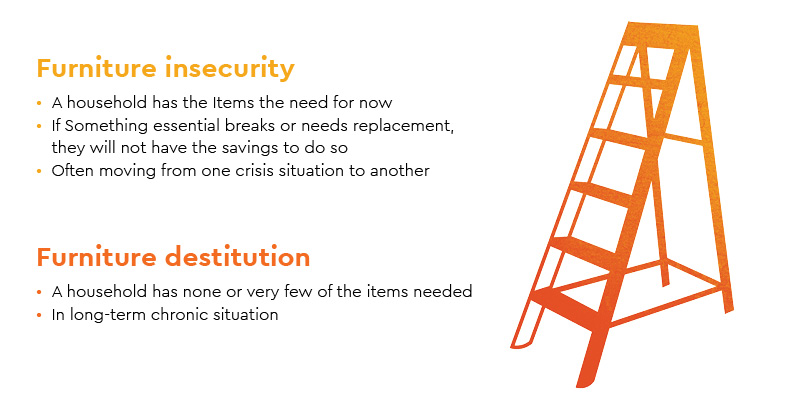There are harmful physical, emotional, social, and financial consequences to Furniture Poverty, and it’s not just about material needs as furniture poverty is a consequence of the broader issue of poverty.
The impact of furniture poverty can be devastating. Not having a bed to sleep on means a poor night’s sleep, affecting your ability to live, work and study. Not having a cooker to prepare food or a fridge to safely store it in can lead to an unhealthy, expensive diet relying on take–aways. Needing to use a launderette can add approximately £1000 to the annual cost of washing your clothes. Not having a sofa to sit in means you can be unwilling to invite friends or support workers into your home.
Moving from a hostel into an empty box, can lead to people giving up tenancies and returning to a hostel because at least there they have a bed to sleep on.
We see furniture poverty as a sliding scale:

Furniture Poverty is a chronic problem, not an acute one and this means that if someone is living in furniture poverty, providing them with the essential furniture item or items that they need is a great start, but it will not solve all of their problems. Their problems are likely to be more complex and entrenched. This is why End Furniture Poverty works with a wide range of partners with a shared goal to tackle poverty because furniture poverty, like food or fuel poverty, is about people not having enough money to live on. It is about an inadequate welfare system and rising housing costs, it is about insecure, low paid jobs and rising unemployment.
Together we can End Furniture Poverty